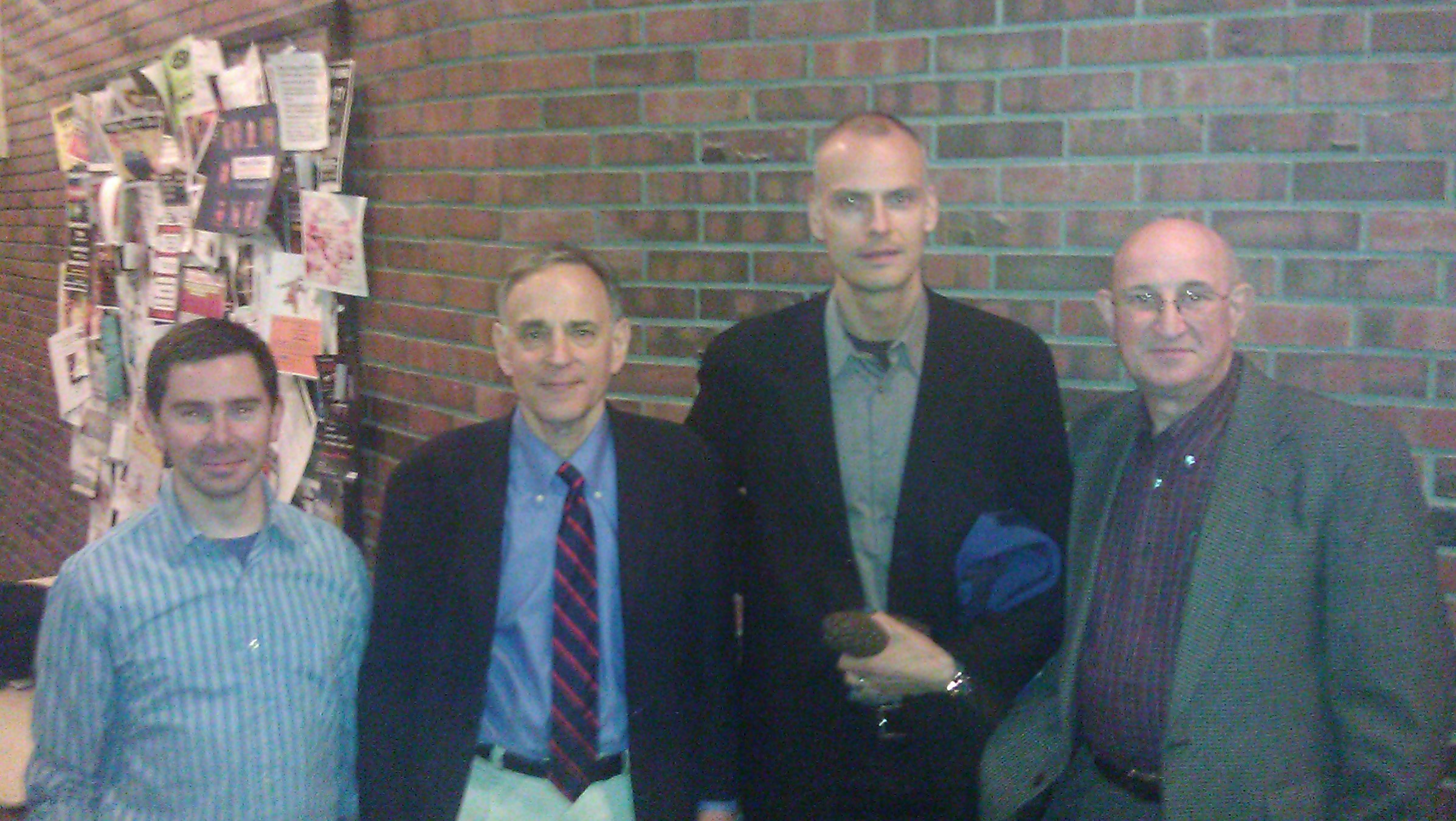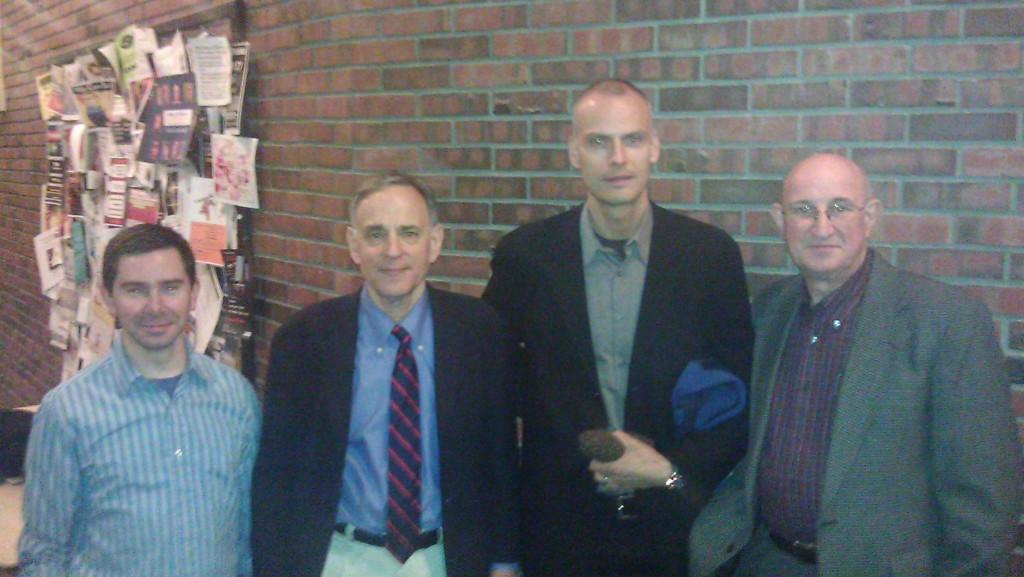

Organized by psychology professor Glenn Geher and graduate student Daniel Glass, the first formal meeting of the Applied Evolutionary Psychology Society (AEPS) took place last Monday in New Paltz’s Lecture Center.
According to Glass, one of AEPS’s founders, the society met to continue its goal to form a group of people interested in utilizing insights from evolutionary psychology in clinical or practical settings.
“The idea was to organize an event that would serve as the launch point of AEPS,” said Glass. “We wanted to get together a group of speakers who would be able to articulate some of the goals of AEPS in general and to lay out some of the practical uses for evolutionary psychology in the clinical setting.”
Nando Pelusi, a counseling psychologist and the series’ first speaker, began the evening by explaining how evolutionary principles have changed the way he practices. In his clinical practice, he said he has realized that most of the concerns that normally cause a disturbance have evolutionary underpinnings.
He said those underpinnings help guide his strategies.
“Especially with a cognitive-behavioral approach, it’s important to know what those emotions were designed to accomplish,” he said. “Why are we fighting some of our emotions? Why do we have them? And why are they problems?”
Subsequent speaker, Dr. Nick Armenti, also a counseling psychologist, addressed these questions. He said many psychological problems stem from “mismatch theory,” the notion that our innate problem solving mechanisms, which formed during ancestral periods, are often maladaptive in our modern environment.
Using social anxiety disorder as an example, Armenti explained how mismatch theory might help to better understand psychological issues.
“In ancestral conditions, communities were smaller and consisted of individuals who you intimately knew. There were very few strangers,” he said. “Today, communities are much larger, and we interact with many strangers whose reputations and motivations are unclear to us.”
He said an anxiety mechanism, which may have evolved to protect individuals from the occasional stranger, is “mismatched” in today’s environment where one may encounter hundreds or thousands of strangers on a regular basis. It’s likely that an individual who has difficulty regulating this anxiety mechanism will be at risk to develop social anxiety disorder.
How the psychology community should incorporate an evolutionary framework into its conceptualization of mental disorders is a question that New York University professor Jerome Wakefield addressed in the symposium’s keynote.
Wakefield said most disorders must be viewed through an evolutionary lens and seen as part of an adaptive mechanism. Furthermore, under certain circumstances, conditions which are currently categorized as disorders may not be disorders at all; they simply represent natural coping mechanisms.
He said a person who becomes depressed after experiencing “failure in a major life goal” may be undergoing a healthy and even adaptive response, and the depressed state allows this person to “rethink things – take a step back.”
In contrast, he said a true disorder arises when “our normal mechanisms fail and that failure results in harm to the individual.”
Ultimately, Wakefield said he believes that in order to accurately conceptualize most mental disorders, one must be aware of their adaptive roots. He used the term “harmful dysfunction” to describe mental disorders that stem from mismatched adaptive mechanisms.
Although applied evolutionary psychology is a burgeoning academic area, it is not without critics.
Jonathan Raskin, the head of New Paltz’s Counseling Program, offered a formal response to Wakefield’s address. Raskin asked, “What is a mental mechanism?” and said there is no evidence of a mental mechanism’s existence.
He then said that the notion of a disorder as the “failure of a mechanism” is in itself troublesome, because mental disorders are ultimately “social constructs,” a position which is anathema to evolutionary framework.
Despite the debate that ensued, organizer Glass said he was happy with the outcome of the symposium.
“I think the event served its purpose,” he said. “It met its goals in that we were able to assemble three great speakers that synthesize the main points of evolutionary psychology and transmit them to an audience, which, to my knowledge, hasn’t been done before.”
